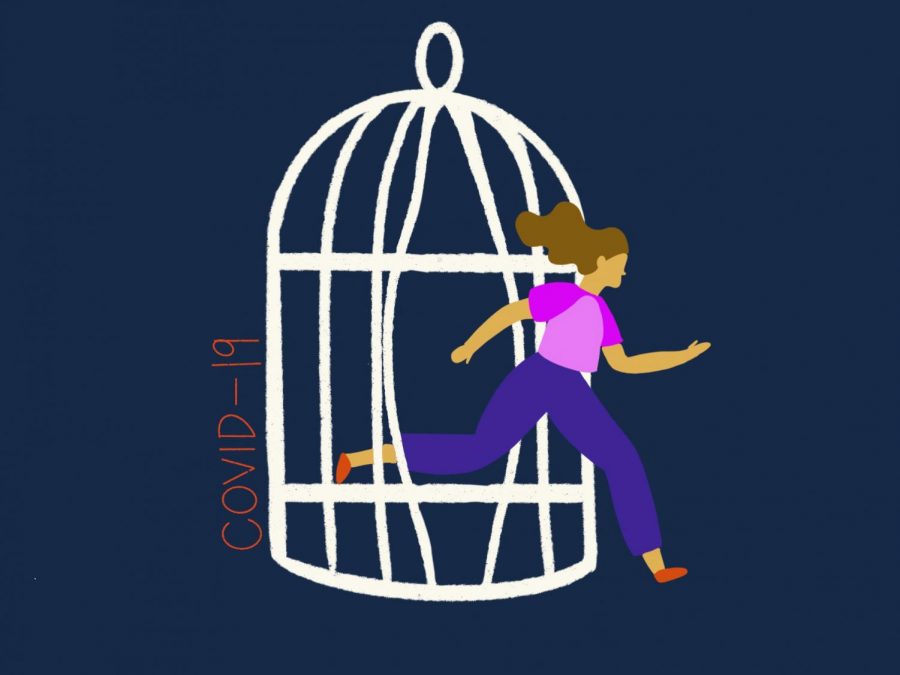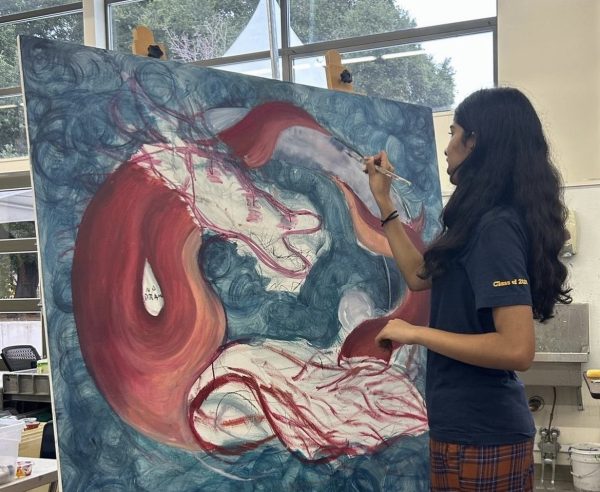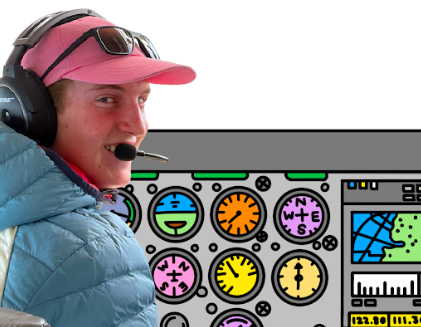Menlo Students Reflect on How the Pandemic Changed Their Lives
A year after the pandemic started, some students are beginning to feel like they are escaping from the cage of COVID-19. Still, others feel lasting effects that continue to impact their lives. Staff illustration: Sophie Fang.
May 4, 2021
In March 2020 when the first cases of the COVID-19 virus were reported in the United States, Menlo was one of the first schools in the nation to shut down. Many students were relieved and excited to have a spontaneous break from the stress of the second semester. Yet little did they know that it would be more than a year before students would all return to campus.
Looking back on an unprecedented year, some students realized they reinvented themselves. Freshman Lucinda Schafer feels like a completely different person than who she was a year ago. She experienced the pandemic during a transitory time in her life, as she was graduating from middle school and moved to Spain for six months, which is where she lived when the pandemic began. “COVID-19 hit at a time in my life where I started to grow up and mature more, but I was growing up without other people around me,” Schafer said.
Due to this lack of social interaction at the start of the pandemic, she now finds herself approaching people and social events differently. “[I] feel more out of place than I would have a year and a half ago,” she said. Schafer identifies as an introverted person, but the pandemic has taught her the value of human interactions and the impact these interactions have on shaping how she grows.
Senior Danielle McNair points out that she did not feel too isolated during shelter in place because of her access to technology. She was able to stay connected with her friends through FaceTime and Zoom. In addition, McNair’s cousin moved in with her family in late March to combat her own loneliness. “Getting to spend time with her for weeks like we did allowed us to bond it a way that we would never have been able to,” McNair said. She also managed to spend more time with her dad. “He was able to go on daily walks with me, play basketball at our home and sit down and watch movies with us,” she said.
Not only did her family life benefit from the extra time she had, but McNair also explored new passions that she previously did not have time for. “I began painting and continued to do so because I found such a deep love for it during COVID-19,” she said. Although she missed out on a lot of the traditional high school experiences, overall the pandemic was a time of growth for McNair. “I enjoyed quarantine a lot because I grew closer to my family, felt good about myself and got to focus on passions I put aside for so long,” she said.
Sophomore Jack Goler agrees with McNair: although he was unable to hang out with his friends as often as before the pandemic, he was happy to get to be with his family. “I am grateful for all of the time I’ve been able to spend with my family at home,” Goler said. However, he also felt the strain of online school. “Online learning has been quite difficult for me, as I have trouble focusing online, and [I] find it be far more exhausting,” Goler said.
Junior Kami Israelski struggled with both academic and personal changes in her life during the pandemic. At first, she was relieved to be in school online, after a challenging academic year. She felt as though she had proved herself to the teachers, so when her classes transitioned online, she stopped working as hard as she usually would. “I saw homework as a due date more than anything else,” Israelski said. Her deteriorating work ethic caught up with her when junior year started and her workload picked up.
As school grew more demanding, Israelski’s mother was diagnosed with cancer in the fall. “[This news] automatically set me on a path to failure,” she said. “If this were to happen any other year, I would view school as an escape from that reality, but as I soon realized, there was really no escape from this, as school was at home.”
Online learning made it easy for Israelski to evade social interactions, ultimately isolating herself from her peers and teachers. She grew accustomed to this lifestyle of superficial connections and poor time management.
Now that school has returned in person, Israelski finds it difficult to adjust. “I can barely handle a single [sports] practice, and I am in bed by 3 a.m. with maybe half of my homework done if I’m lucky,” she said.
Schedules similar to Israelski’s are the harsh reality for many people due to the effects of the pandemic, and students are struggling to regain their footing as life returns to some degree of normalcy. “I am still trying to climb back out of that hole I dug for myself,” Israelski said.












